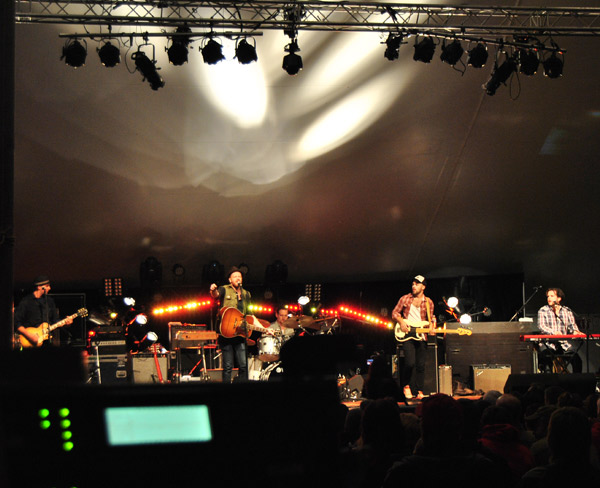Every time I strap my bass on, I repeat in my head a sentence a stranger once said to me. It happened at a bar where I was playing a cover gig.
Cover gigs can be tedious work. It’s taken me years of practice to be in a place where I can get up on stage and play just about any song I’ve ever learned. It’s taken even longer to be able to get on stage and play songs I don’t know. It’s a skill that I’ve acquired from playing in different bands, with different people and in different situations. Now it’s just a nod from the singer and I know it’s going to the chorus. An extended drum fill and I know we’re going to the bridge. A foot stomp from the lead guitarist and I know he’s going to double his solo. It’s hard to describe. You just get to a point where a band functions as a complete organism. Multiple limbs of the same creature. Everyone is listening to each other. Communication on a level that goes so far beyond vocabulary. It’s an amazing thing to be a part of.
But it can often feel like it’s just a waste.
A faceless crowd stands in front of you and requests one terrible song after another so they can get drunk and sing and dance with their friends. For a long time, I found it demoralizing. There’s good money to be made playing covers, but I thought it was at the cost of my musical dignity. Then, one person in the crowd changed that in a moment. She came up to me between sets and said:
“You look bored up there.”
“Yeah,… Playing cover gigs is kind of boring.”
“But look at how happy it makes everyone in the room to hear you play.”
My mind was blown. That’s really all it took. She was dead right. I was earning a living by making people happy. Even if they’re just drunk frat boys singing Sweet Home Alabama. It’s a night out for them. They worked hard all week, and this is their release. They plan it all out with their friends, they get all dressed up, and they come here and forget about their shitty jobs, their ex-girlfriend, their losing hockey team, and so on. Music makes them happy. Even if it’s just background noise while they hit on girls. Even if they’re fingering a Blackberry for most of the night updating their Facebook with pictures of themselves getting drunk.
Live music breaks down barriers in a strange way. It sounds cliché, but it’s true. When you’re playing a gig with a crowd in front of you, you’re communicating with people in a way that goes so far beyond words. Whether it’s a song they’ve heard a million times or something they haven’t ever heard before. You’re eliciting an emotional reaction from them.
That’s what keeps me going. It’s that instant connection that happens when we put on these instruments, plug them into thousands of watts of electricity, and blow it out for everyone to hear.
Most people will hear us play and probably never even think about it again. But in that moment, we’re experiencing a human bond with complete strangers. And when you have an entire room full of people who are mostly strangers experiencing these emotions together, it’s a powerful thing to be a part of. As we keep getting better as musicians, we keep getting better at eliciting these feelings. And just like how that stranger affected me, the musicians affect the crowd. They both give and receive, they function as one, a symbiotic relationship. The band is the heartbeat; the people are the blood.
Mark Laforest is a professional musician currently playing bass with Autumns Cannon and Silver Creek. He has toured extensively in Canada and abroad.

